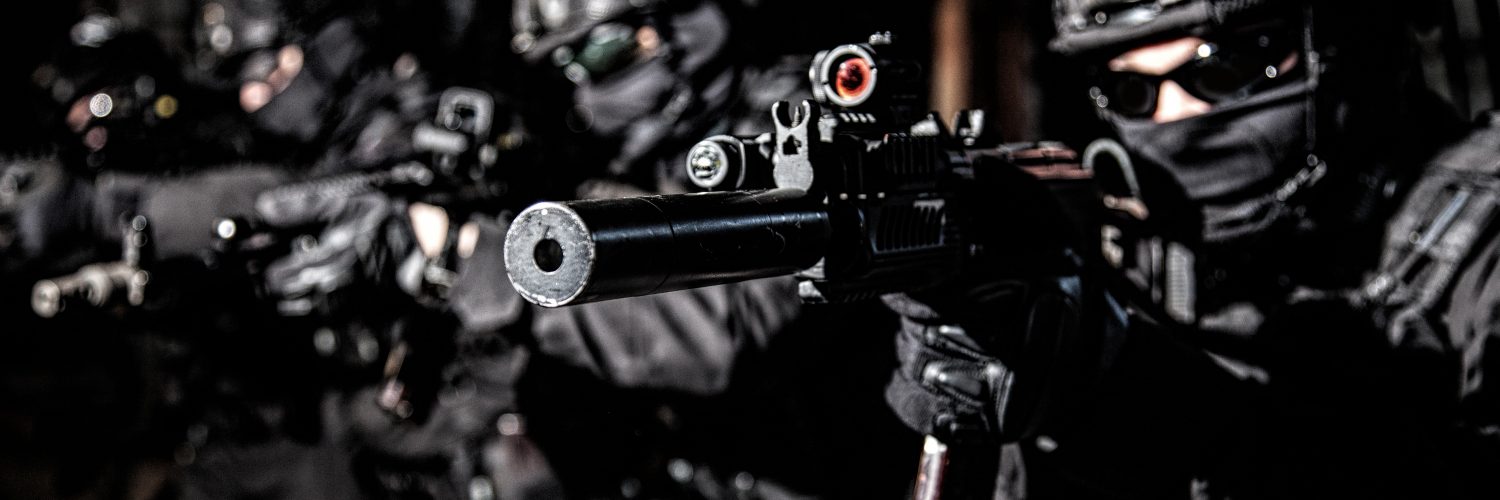A salesperson’s job is not an easy one, a flawless performance (no one is that good) can at best get them 50% of the way there. The buyer needs to meet them halfway to complete any transaction successfully. It should not come as a surprise, therefore, to learn that the average close rate for a salesperson across different industries is a mere 20%. In contrast, a hostage negotiator selling “jail time” (talk about a tough sell) has an average success rate of 90% or better! What can we learn from hostage negotiators? How can we apply their techniques and tactics to our interactions with others?
We were privileged to speak with Derek Gaunt, author of Ego, Authority, Failure©, and trainer with 29 years of law enforcement experience, 20 of which as a team member, leader, and then commander of hostage negotiations teams in the Washington, DC metropolitan area. He is a hostage negotiation and incident command subject matter expert who frequently speaks at hostage negotiations and SWAT conferences across the country. As a member of the Black Swan Group, he is a negotiation trainer and personal coach. Derek has trained throughout the US and around the world, instructing businesses on how to apply hostage negotiation practices and principles to their world. In an amazing hour-long conversation with Pandemic Punditry, Derek revealed his secrets to successfully prevailing in any negotiation. Here are some insights from our freewheeling conversation with Derek.
Fear according to Derek, is a major inhibitor of achieving compliance or agreement – a key objective of any negotiation. Our “flight-or-fight” responses inhibit our ability to be rational, reasonable, and respectful. To effectively deal with any objections raised during a negotiation you need to discern the insecurities and fears that may lie behind those “no” responses. According to Derek, fear is a toxic and caustic emotion that not only leads to poor outcomes in a protracted negotiation but will also seriously impair productivity and innovation in any organization that uses fear to keep employees in line. He gave us 5 reasons why fear-based leadership is ineffective:
Derek defines Tactical Empathy(™) as the ability to understand and appeal to another’s needs, feelings, and perspectives in a non-judgmental way. According to Derek, “you don’t just put yourself in the other person’s shoes, you need to see what they see!”—authenticity, not authority, is the key attribute here. Delivery and tone play a key role in communicating authentically:
- How you say something is more important than what you say
- How, where, and when you deliver information plays a huge role in how it’s received
- Your employees need to detect sincerity and genuineness in your communications.
To effectively communicate Tactical Empathy here are a few tools you need to use courtesy of the “Black Swan Group Leadership Guide”:
According to Derek, one of the biggest mistakes you can make in a negotiation is to treat your counterpart how you wish to be treated. If you value directness, it’s easy to assume that your counterpart does also. Even if you have the best intentions, this “golden rule approach” to negotiation does both parties a disservice. Being an effective negotiator means treating your counterpart how they wish to be treated—and leaving your preferences out of it. For example, you may see being direct as a form of respect, it can just as easily come off as an attack to someone with a different negotiating style. But how do you know how someone wants to be treated? While there are many different types of people in this world, there are only three types of negotiators: Analysts, Accommodators, and Assertives. Accurately determining which type of negotiator your counterpart across the table happens to be will make or break a negotiation. The following infographics will help you determine what type of negotiator you are facing and how you will need to change your negotiating style in response to theirs.
These negotiating archetypes are extremely important. According to Derek, the best negotiators incorporate characteristics of all three types into their strategy and know-how to shift their communication style to better fit their counterparts. Are you an Analyst, Assertive, or Accommodator?
Being a leader is all about de-escalating negative emotions—and returning people to their normative functioning level. Leaders engage in negotiations, or as Derek likes to call them “difficult conversations,” rife with negative components all day every day. By practicing these new negotiation strategies and tactics on low-stakes opportunities like scoring a room upgrade, you can acquire the skills and confidence needed to perfect them for opportunities with much higher-stakes. In today’s marketing-driven buying process where more than 80% of the buyer’s decision-making will occur without direct human-to-human interaction, your negotiation skills (or lack thereof) will determine your sales close rate. How would you rank yourself as a negotiator?
For compelling marketing and sales advice, follow Pandemic Punditry’s “Marketing in a Pandemic” mini-series. If you like to contact the authors directly, you can email them at hosts@pandemic-punditry.com.








Add comment